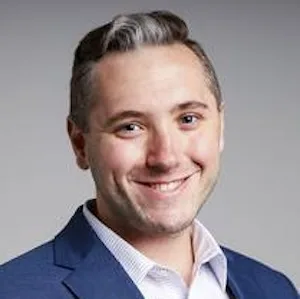
FILE - Clark County Sheriff and Nevada Gov.-elect Joe Lombardo gives a victory speech during a news conference, Nov. 14, 2022, in Las Vegas. (AP Photo/Ellen Schmidt, File)
In unveiling his $12.7 billion executive budget, Nevada’s Republican governor outlined the need for bipartisan solutions to bring down prices and bolster public safety and education.
Nevada Republican Gov. Joe Lombardo is asking lawmakers to consider proposals that would allocate more than $1 billion for new housing developments, give pay raises to public school and charter school teachers, and to create a new state agency independent of the existing department of health and human services to administer programs like Medicaid and the state’s health insurance marketplace.
In a roughly 45-minute State of the State address to state legislators in Carson City on Wednesday, the Republican governor unveiled a $12.7 billion state budget, and identified key policy areas he believes his administration can work with alongside the Democratically-controlled legislature in areas such as economic development, housing, education, health care, and public safety.
Lombardo acknowledged the reality that any part of his legislative agenda could only be passed with bipartisan support. Democrats hold majorities in both the assembly and state senate, but the governor also stressed the need to balance the need for these investments with maintaining fiscal responsibility.
“My fellow Nevadans, I stand before you to tell you that the state of our state is steadily improving,” Lombardo said, noting a record-high number of tourists who visited last year and a declining unemployment rate. “We are certainly headed in the right direction, and the outlook is positive. But in order for it to remain sustainable, we must sharpen our discipline and focus.”
Many of the bills Lombardo previewed in his address had yet to be received by the Legislative Counsel Bureau, which means full details of the proposals aren’t yet publicly available. Lawmakers will begin considering Lombardo’s budget once the legislative session officially begins Feb. 3.
Democratic leaders criticized Lombardo afterward over concerns the budget he submitted wasn’t properly balanced and for vetoing in 2023 many of the proposals he is now asking them to consider. Assembly Speaker Steve Yeager (D-Las Vegas) added the caucus had yet to review the full budget proposal from Lombardo’s office and that it was too soon to opine on specific proposals, but noted some changes will likely have to be made because state revenues are projected to remain flat.
“Some of what I think I would characterize as structural inconsistencies throughout the budget are really something that we should be taking a better look at,” Yeager said. “[But] this process is 120-plus days of push-and-pull, separation of powers, the executive, the legislature — this is your government at work.”
Lombardo — who vetoed a record 75 bills in the 2023 session — noted there will be plenty this upcoming session that Democrats and Republicans won’t agree on, but even Democrats like Yeager and Senate Majority Leader Nicole Cannizzaro (D-Las Vegas) admitted afterward there was a lot, on paper, the two sides could work together on. Lawmakers so far have reintroduced at least 45 bills from last session with hopes that at least some will eventually be enacted into law.
In any event, Wednesday’s speech was one of Lombardo’s best chances yet to face voters and deliver his vision for the state as he gears up for re-election in 2026.
Here are four takeaways from Lombardo’s State of the State:
Agreement on one thing: Housing, health care costs too expensive
With a statewide housing market that shows no imminent signs of slowing, Lombardo told lawmakers it will take action at every level of government to help alleviate high housing costs, from the local level all the way to the highest offices of the federal government.
Lombardo also unveiled a proposal that would streamline permitting, support local land developers, and dedicate $1 billion for attainable housing units statewide. The bill would hinge on leveraging public-private partnerships to help get young families and professionals into homes.
Local housing advocates say they find it hard to believe Lombardo, especially after the governor in 2023 vetoed bills that, among other things, would have capped rent increases for senior citizens at 10%, reformed the state’s eviction process and, provided other forms of relief for tenants. State estimates from 2022 show more than 40% of households rent, but Lombardo reiterated Wednesday he will not support measures to implement rent control.
“[Lombardo’s] pact with Donald Trump to auction off Nevada’s public lands is a blatant giveaway to greedy developers, while the rest of us are left to bear the cost,” Mathilda Guerrero Miller, government relations director for the Native Voters Alliance of Nevada, said in a statement.
Kristee Watson, executive director of the Nevada Conservation League, said in a statement the state doesn’t need to pit land conservation and housing affordability against each other, and urged the state to find “workable, balanced solutions” that meet the needs of all Nevadans.
The federal government still manages more than 85% of the territory inside of Nevada’s borders, meaning the state only has so much room to develop housing before more can be allotted, typically through a bill which must be signed into law by the President. Lombardo on Wednesday touted the work of federal lawmakers like US Rep. Susie Lee, who worked with the governor’s office on legislation signed into law last year making it easier to appraise federal lands for sale.
Frustrated by what he said was the slow-moving bureaucracy of the federal government, Lombardo said he believes the incoming administration of President-elect Donald Trump will be receptive to opening up more public lands for development.
“I have spoken with President Trump on multiple occasions to let him know how important it is that more federal land be released, so we can relieve the mounting pressure on our housing inventory,” Lombardo said.
But perhaps Lombardo’s biggest surprise Wednesday were intentions to establish a new government agency separate from the Nevada Department of Health and Human Services to manage funding for mental health programs and services like Medicaid.
Specifically, Lombardo’s proposed Nevada Health Authority would oversee Medicaid, the state’s new online health insurance marketplace and employee health benefits, as well as administer funding for mental health, and other behavioral health services. The governor also pledged to double the state’s investment in healthcare education and workforce development, and proposals to help increase healthcare access throughout rural swaths of the state.
“Health care costs remain a heavy burden, and access to health care is too limited for too many,” Lombardo said. “These initiatives are grounded in a simple but profound belief that the strength of Nevada’s communities begins with the health of its people.”
Somewhat close, somewhat far apart on education
The governor received his biggest applause of the night from legislators after announcing plans to include pay raises for K-12 school teachers in the public education budget — a provision that will likely be embraced by Democrats. But that also includes planned raises for charter school teachers, which Yeager and Cannizzaro were quick to oppose in the news conference held shortly after Lombardo’s address.
Lombardo also unveiled a new bill dubbed the Nevada Accountability in Education Act, which he said is aimed to impose stricter accountability standards, and will be coupled with a new fund to reward the state’s highest-performing teachers and school administrators. The bill will also target resources to bolster early literacy, particularly in schools that are struggling, Lombardo said.
The bill will also expand open enrollment policies “to break down geographic barriers and provide transportation to make choice available for all families.”
MORE: 3 education bills to look out for in Nevada’s 2025 legislative session
“If a school is found to be consistently underperforming, make no mistake, my bill proposes decisive action,” Lombardo said. “Let’s make a permanent difference in our schools.”
Lawmakers noted that funding levels for K-12 education are largely the same as the previous biennium due to the nature of the state’s per-pupil funding formula, which went into effect in 2019 and is tied directly to state revenues. Lombardo in 2023 tried — but ultimately failed — to include $50 million in state funding to subsidize tuition costs for charter schools, and Democrats on Wednesday again rejected the idea that public dollars should be spent on private education.
Nevada education officials for years have urged lawmakers for more funding as the state is routinely ranked near the bottom in national rankings for public education. While running for governor in 2022, Lombardo said frequently the state should look to charter schools and other school choice programs to help bolster test scores.
Dawn Etcheverry, president of the Nevada State Education Association teachers union, said in a statement responding to Lombardo’s address the state should prioritize public education above all else — rather than public incentives for stadiums and film tax credit programs.
“Ranking near the bottom in education funding, legislators must prioritize investments in our public schools and reject proposals that divert taxpayer dollars into private interests,” said Etcheverry, who during last year’s session led an effort to block $380 million in public funding for a Major League Baseball stadium in Clark County. “Instead, Nevada should pass the plan to achieve optimal education funding, reduce class sizes, strengthen accountability for charter schools, and ensure every student has access to universal free meals.”
Showdown on crime, elections bills likely coming
Lombardo additionally announced plans for a pair of election bills that would require voters to produce some form of photo identification before receiving a ballot, as well as change the timeline for when a mail-in ballot can be received by elections officials in order to be counted — both of which appeared to be nonstarters for Democrats.
In his address, Lombardo said it made “zero sense” that officials are allowed to continue counting ballots up to four days after a given election. Current state law mandates that all ballots — as long as they are postmarked by Election Day — must be counted, and gives county officials four days to receive mail-in ballots from the US Postal Service.
Lombardo said he hoped to work with Democratic Secretary of State Francisco Aguilar on a legislative remedy to the ballot-counting process, but added he would seek a voter referendum if the effort stalls.
“I would hope that this is one of the first bipartisan bills I sign,” Lombardo said. “Honestly, I prefer not to go to the ballot on this issue, but if the legislature chooses not to pass it, I’ll again lead an effort to take it to the voters and ask them to decide.”
RELATED: A step-by-step guide on Nevada’s vote-counting process
In November, voters approved a Lombardo-backed measure called Question 7 to require photo ID verification for voting. The measure needs to be approved again by voters in the 2026 general election in order to take effect.
Cannizzaro told reporters after Lombardo’s address she thinks all Nevadans are frustrated when results don’t come out on Election Night, but stressed the state should ensure elections are accessible for all citizens. She cited a report from Aguilar’s office that showed about 98% of ballots had been received by election officials by Election Day.
Rather, Cannizzaro said, county elections officials should receive adequate funding to alleviate any bottlenecks in the tabulation and reporting processes. “I think one of the things that we’ve learned from that data is that we have to be providing some resources to our county clerks,” Cannizzaro said. “They’re in this because they are looking to make sure that elections are administered safely and securely and that people can cast their votes. We have to make sure that we’re providing them the resources to be able to do that job and to count all of those ballots as they come in.”
Lombardo also announced legislation that would effectively reverse some of the criminal justice reforms enacted by lawmakers following the 2021 session, specifically targeting increased penalties for theft, stalking, and driving under the influence.
The new bills would also impose harsher penalties for repeat offenders and those convicted of violent crimes against children and elderly people.
Consensus-building a higher priority than MAGA red meat
Lombardo was the only Republican gubernatorial candidate to unseat a Democratic incumbent during the 2022 election cycle, and if he displayed anything Wednesday, it was his belief that Nevada voters remain as purple as ever.
Lombardo knows his pathway to re-election will require reaching across the aisle. He found success in running as a social moderate in 2022, and by sticking with that same ethos Wednesday, Lombardo demonstrated his belief that it will be a winning strategy again in 2026.
Although Trump became the first Republican to carry the Silver State in a presidential race in 20 years, Lombardo notably made no mention of conservative culture war issues (like transgender athletes in youth sports) or immigration, and instead doubled down on the pocketbook issues that helped propel him to the governor’s mansion in the first place.
Time will tell just how much Lombardo and state Democrats are together on key issues. Urging for bipartisan calm at the start of the legislative calendar is one thing.
But keeping that consensus throughout the session will certainly be another.
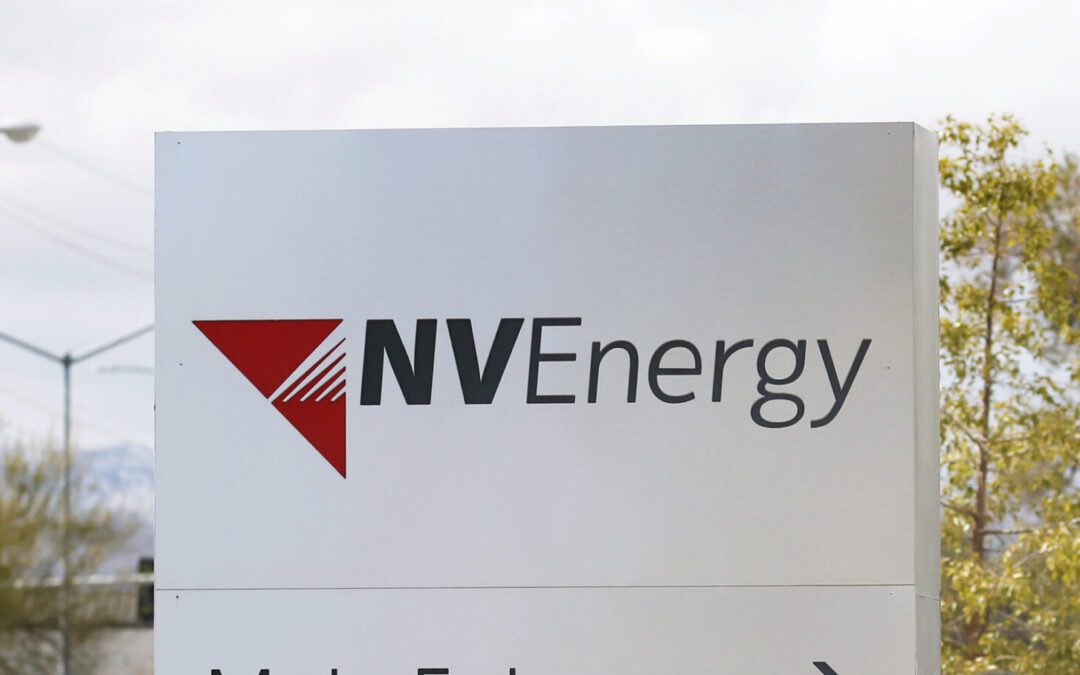
Bill seeks to ensure full refunds when utilities overcharge customers
By Jeniffer Solis, Nevada Current Lawmakers are looking to pass a law that would require utilities to fully refund energy customers who are...
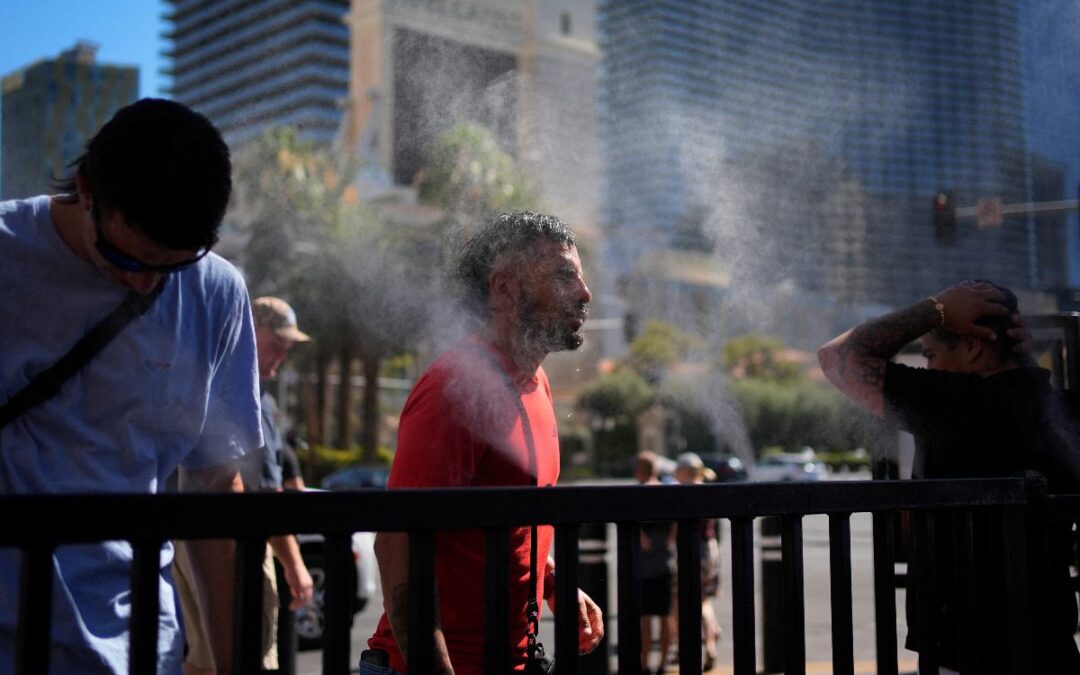
Proyecto de ley requeriría mejor protecciones del calor extremo en algunas ciudades de Nevada
Cinco ciudades de Nevada pronto podrían verse obligadas a tomar más medidas para ayudar a proteger a los residentes del calor extremo. Si el...
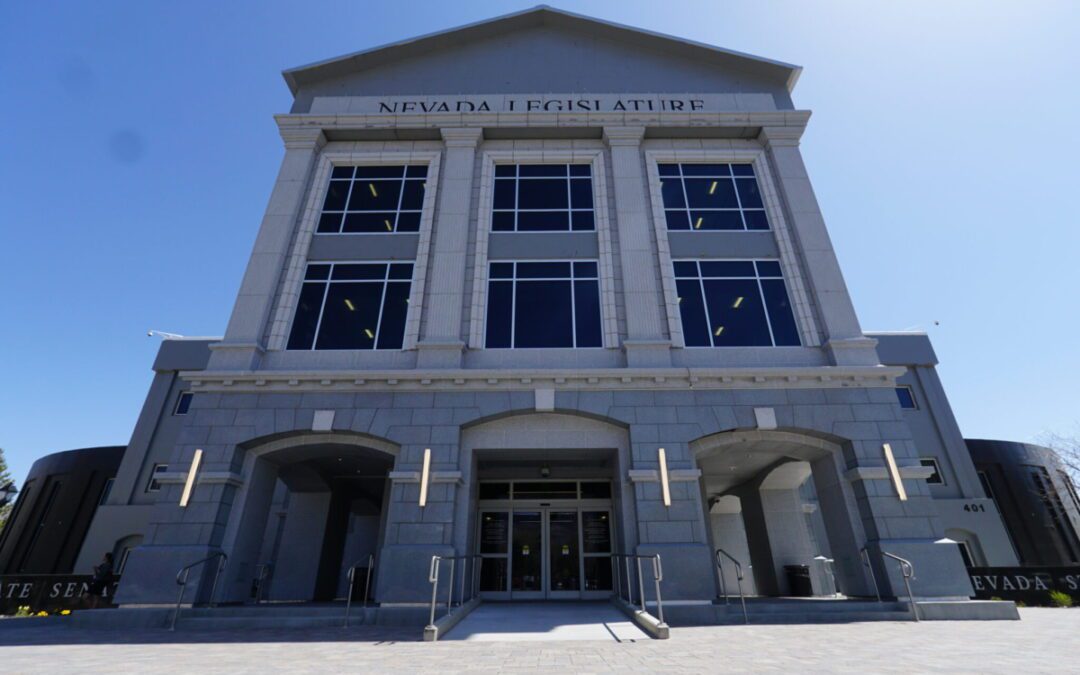
‘The outlook has deteriorated:’ NV revenue forecast nudges down, economists see signs of recession
By April Corbin Girnus, Nevada Current Nevada’s Economic Forum adjusted the tax revenue forecast down $191 million for the upcoming biennium,...
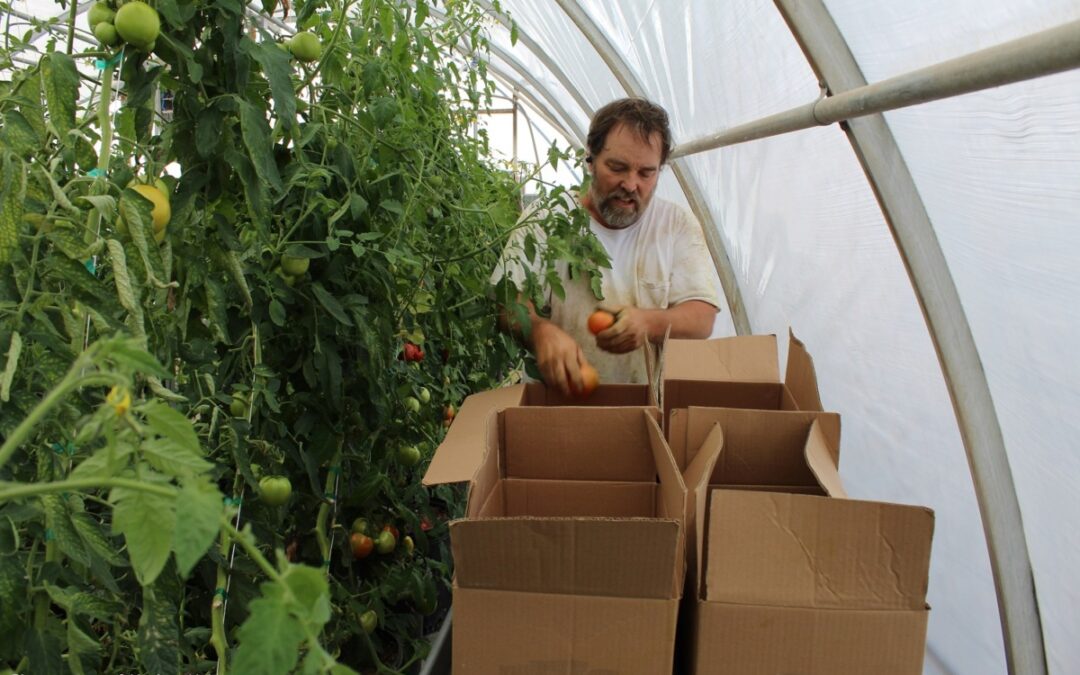
USDA cancels funding for popular locally grown food programs in Nevada
By Jeniffer Solis - Nevada Current The U.S. Department of Agriculture has axed two programs that gave Nevada schools and food banks more than $6...
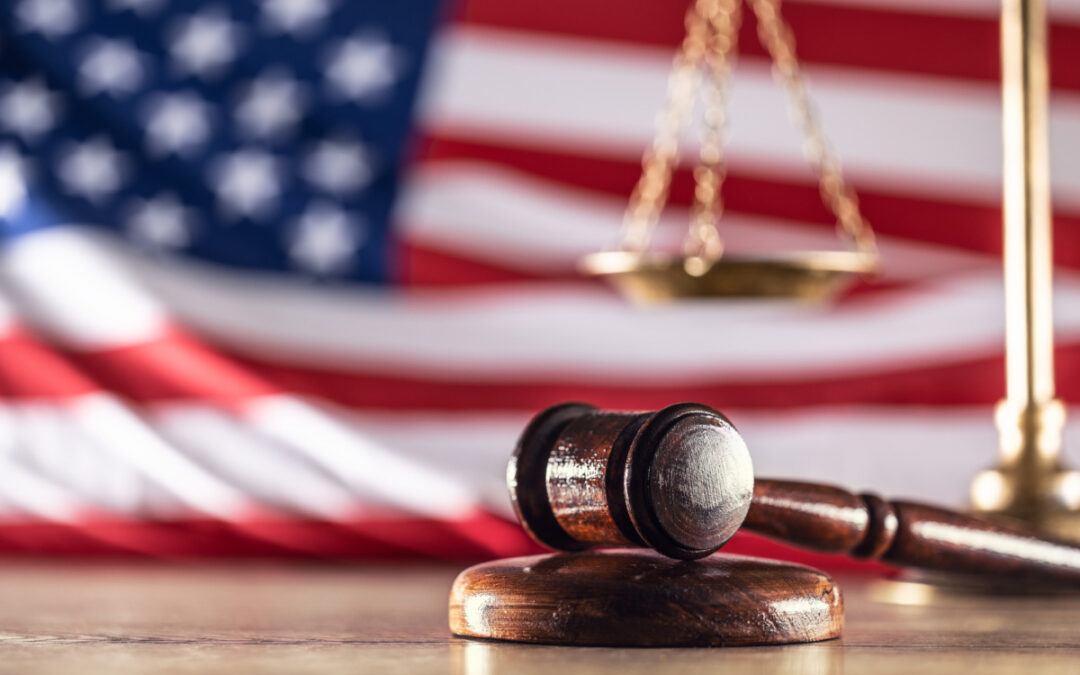
State bill would allow immigrant parents to designate legal guardians for kids if they’re deported
Assembly Bill 460 would create a legal process that authorizes a parent or guardian to pre-designate another person to act as a child’s primary...

Do you care about IVF access in Nevada? These senators have a plan to protect it.
A group of Nevada Democrats wants to protect in vitro fertilization (IVF) in the state—and they want to make it more accessible for people to get....

